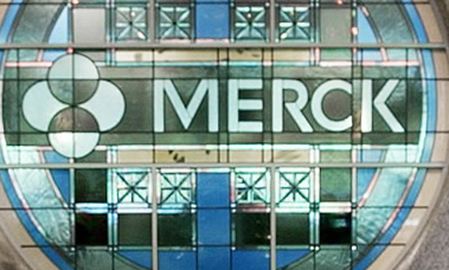Merck has already started shipping its just-approved PD-1 cancer drug Keytruda (pembrolizumab) which was approved just last week. EVP and president of Global Human Health Adam Schechter announced the status at the Morgan Stanley Healthcare Conference Tuesday, and added that orders started flowing in the day before.
Schechter said the drugmaker has already started training its sales force so it can begin to address around 1,000 of the physicians he described as representing “the vast majority of prescriptions” within the next few days. He also expects the sales force will be able to reach the remaining 5,000 likely prescribers within about a month or a month-and-a-half.
The drug is indicated for patients with unresectable or metastatic melanoma who have already taken Bristol-Myers Squibb’s Yervoy (ipilimumab), and Schechter estimated there are between 1,000 and 1,500 patients “that are currently in the marketplace based on previous failures, so although the indication is relatively restrictive and small, that’s where we will focus our promotion.”
The drug is expected to cost around $12,500 a month, or $150,000 a year, and Leerink analyst Seamus Fernandez wrote in a September 4 research note that not only is the pricing about 25% more than his investment firm projected, but also that key opinion leaders have been saying that there is a strong probability that major medical institutions will begin using the drug for off-label purposes. Merck could not address off-label use at the Morgan Stanley conference.
The PD-1 class is kind of the next-big thing in the immuno-oncology space closely watched by analysts, who see the potential for a major stock boost, as well as healthcare professionals, who consider the highly targeted therapy a major shift in the cancer space. But as Goldman Sachs’s Jami Rubin indicated in June, in this space contenders need to be considered along the lines of big successes for small, defined patient populations, as opposed to blockbusters that can be used by the masses.
Bristol-Myers Squibb expects to file its experimental PD-1 nivolumab, also for melanoma, in the third quarter of this year. Japan already approved the BMS PD-1, known as Opdivo, and Roche announced in May that it was moving ahead with a PD-1 for bladder cancer.








